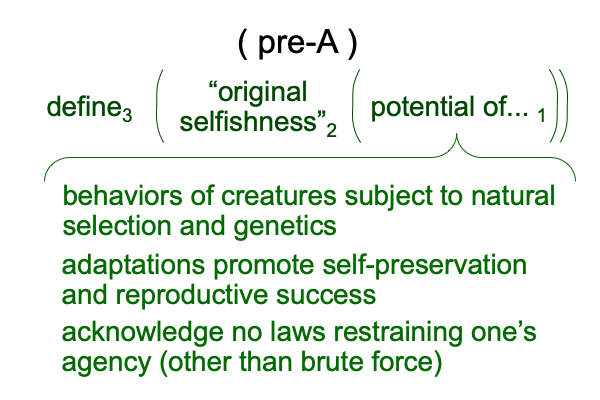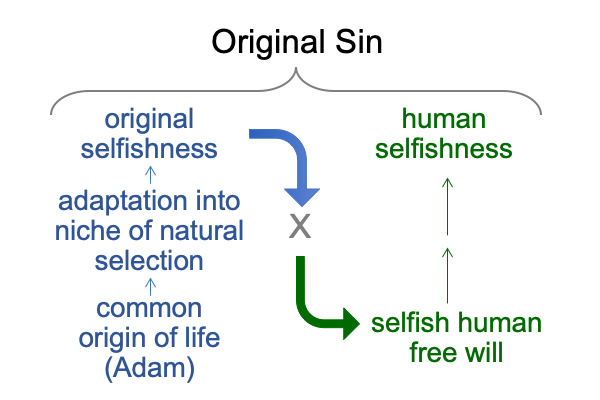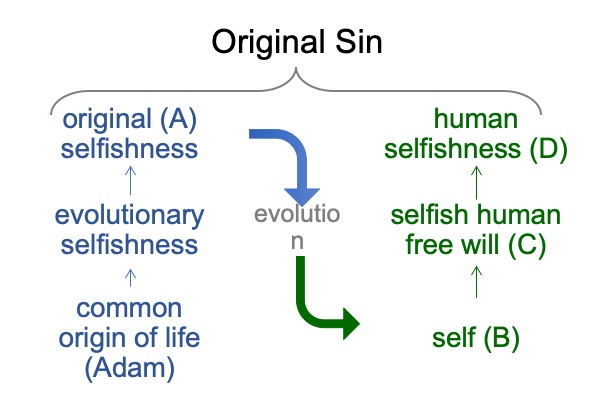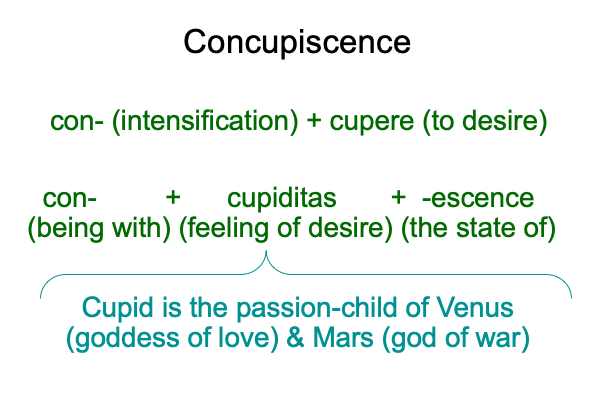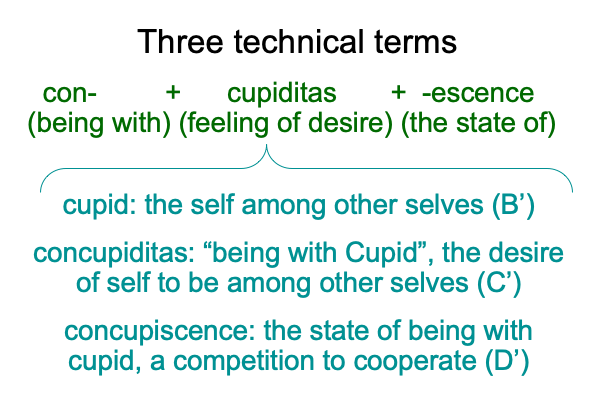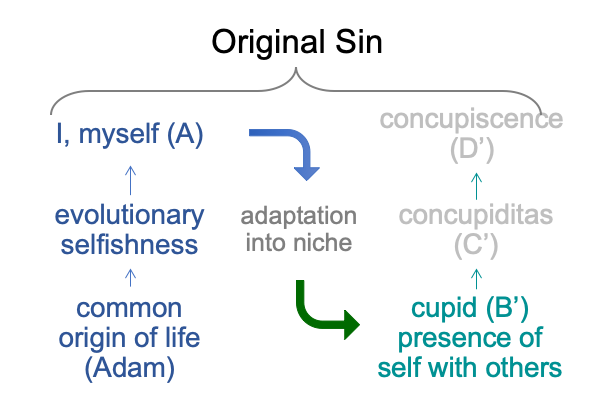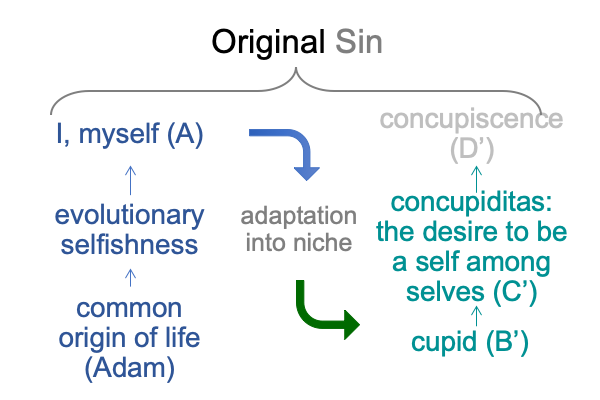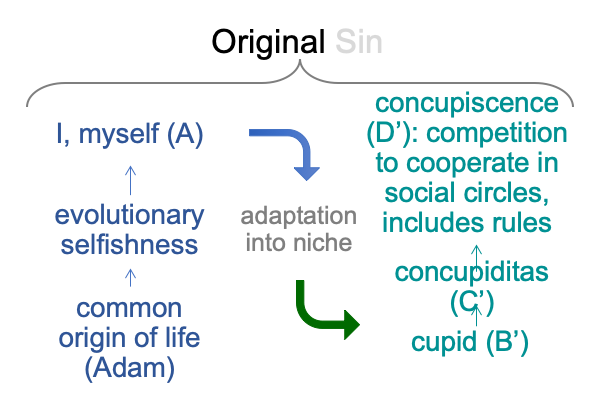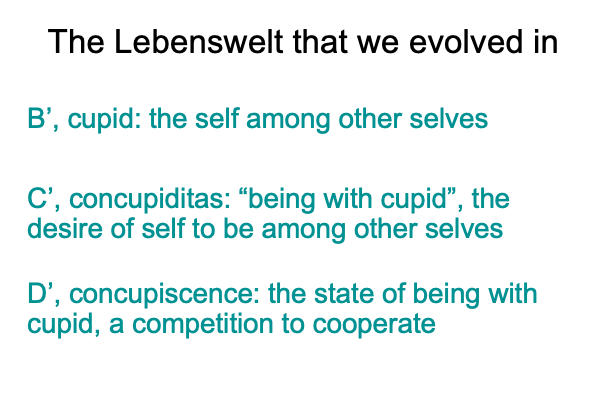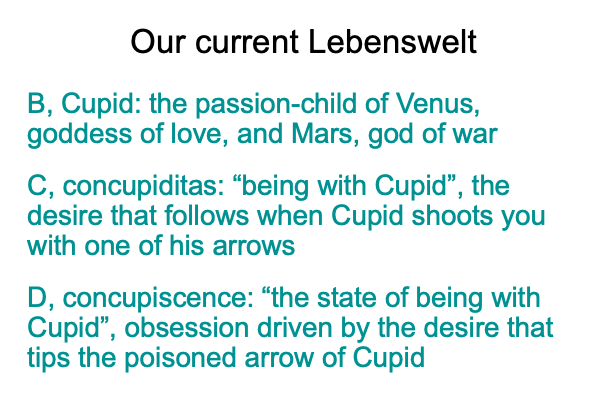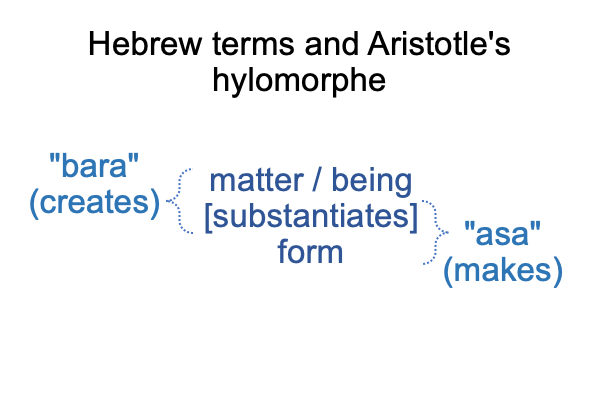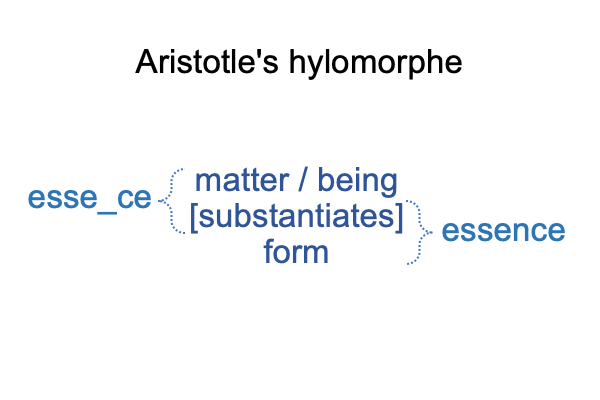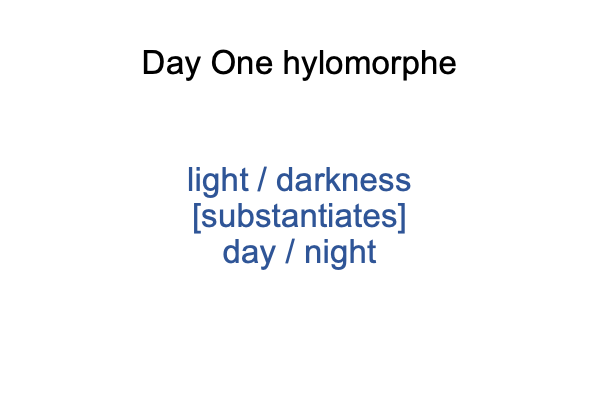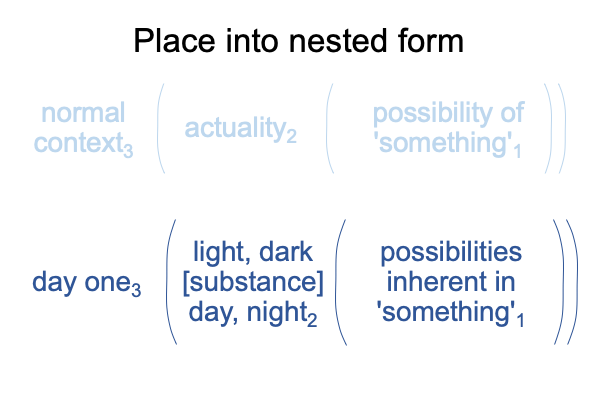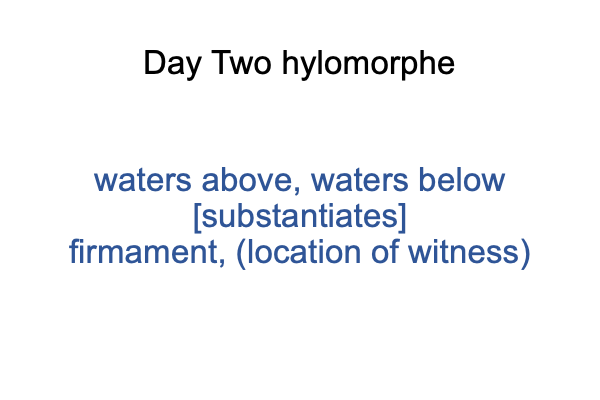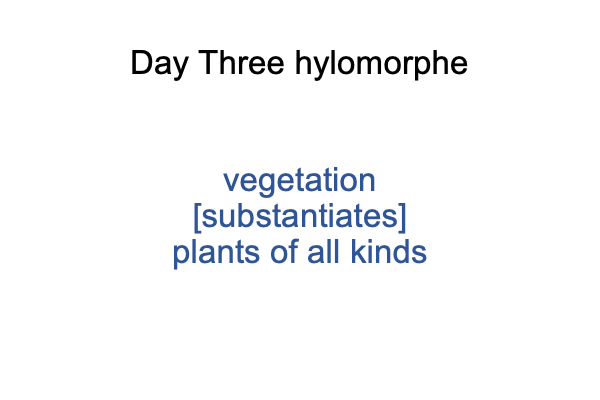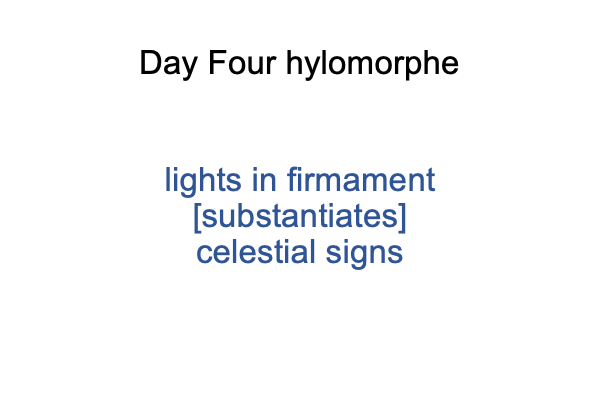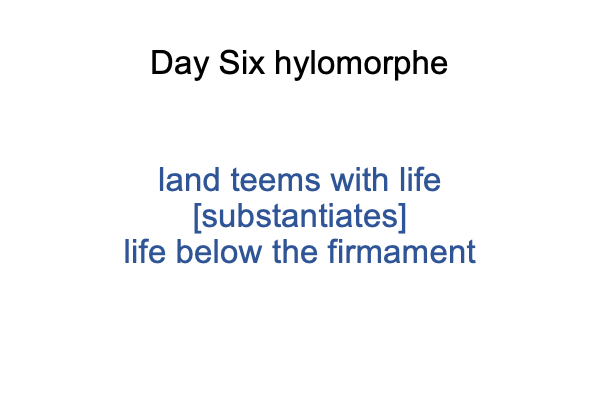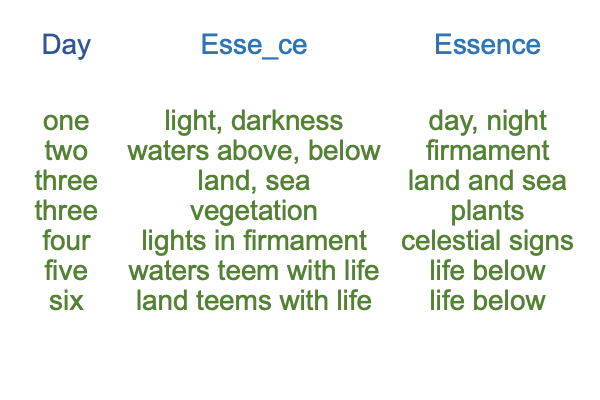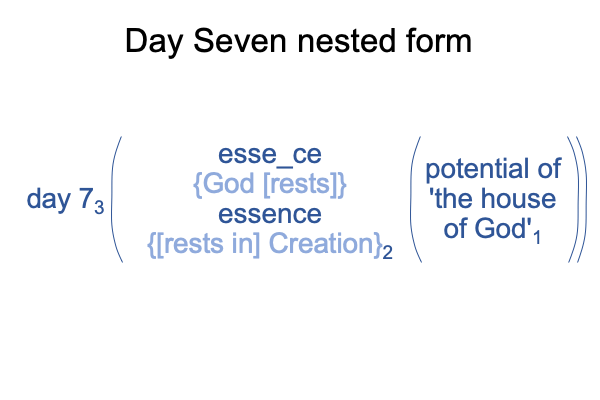Looking at Daryl Domning’s Book (2006) “Original Selfishness” (Part 2 of 16)
0008 Here is a more technical presentation of the previous blog.
How does the term, selfishness, come to be?
The term comes into fullness through four waystations.
0009 What does it mean to define a spoken word?
A particular category-based nested form is foundational to the masterwork, How To Define The Word “Religion”.
A definition3 brings a spoken word2 into relation with the potential of meaning, presence and message1.
0010 The emphatic, I-myself (A), is the initial actuality2.
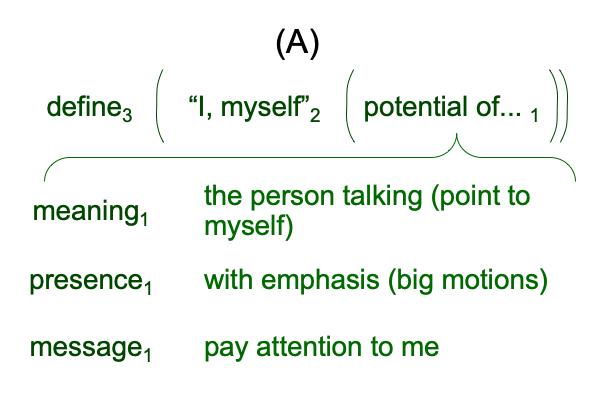
This emphatic is consistent with iconic and indexal sign-qualities of hand talk. It expresses a psychological aspect of an ongoing situation. Under what conditions would one have to emphatically POINT TO MYSELF, or emphatically POINT TO ANOTHER SELF, in the environment of evolutionary adaptation? I suspect that social situations involving larger social circles, such as band (50), community (150), mega-band (500) and tribe (1500) might require emphatics. So, the emphatic may have first appeared as a formality.
0011 The term, “self” (B), is the second term. The step from “I-myself” to “self” involves an explicit abstraction. Emphatic expressions are consolidated into a noun, indicating a thing. Moral deliberation is not required. Social intelligence is.
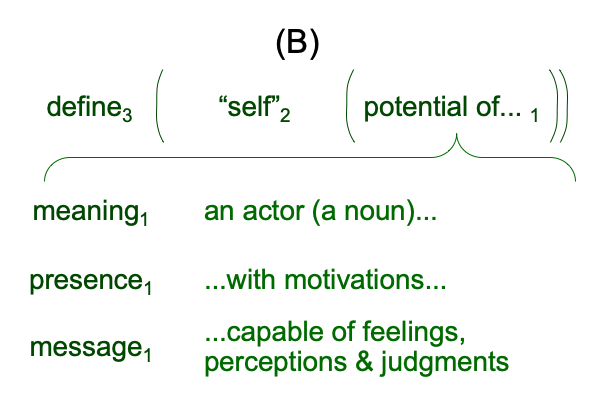
This explicit abstraction is consistent with the purely symbolic qualities of speech-alone talk.
0012 However, this first step carries a suggestion of an implicit abstraction.
Why?
This first step feels very natural, even though few other animals succeed in self-recognition experiments. Animals act as if they are selves, but they don’t realize that they are selves. So, there is something implicit in the abstraction. The “self” involves a theory of mind.
0013 Then, “self” is turned from a noun into an adjective, with the addition of “-ish” (C).
This involves an explicit abstraction. “Selfish” is a quality where the “self” puts its own interests ahead of others. One gets the impression that the interests of others should be taken into account. This implies that morality enters the picture.
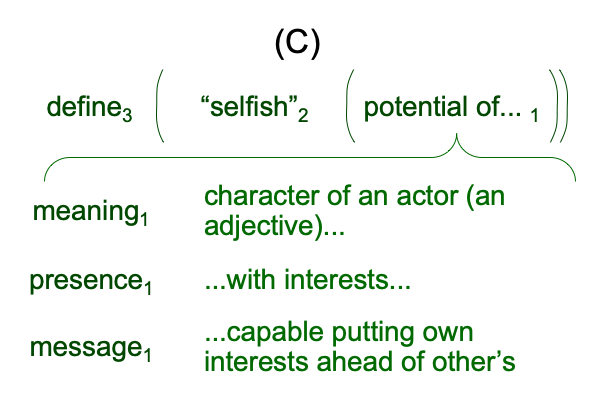
This explicit abstraction requires the purely symbolic character of speech-alone talk.
0014 Then, “selfish” is turned back into a noun, with the addition of “-ness” (D). The message1 underlying the term, “selfish”, becomes the presence1 underlying the term, “selfishness”. The quality of “selfish” becomes a psychological state. Moral overtones cannot be ignored. “Selfishness” entails moral deliberation.
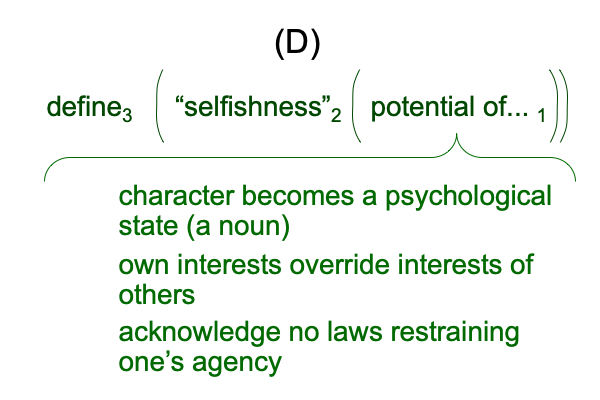
“Selfishness” has another notable facet. The term is scientific. One can observe and measure behaviors where the interests of one party obviously override the interests of others. These situational measurements may be modeled as instances of “selfishness”.
0015 The sequence of development for the term, “selfishness”, is as follows.
(A) The first term appears as it would in hand-talk. Its definition is nascent. Moral deliberation is not required.
(B) The second term is an abstraction to noun. This abstraction may be implicit (more on that, later). Here, it is explicit, since I am discussing the steps in the development of another spoken term. Moral deliberation is not required.
(C) The third term is an explicit abstraction, requiring fully symbolic speech-alone talk. The noun is turned into an adjective, describing a particular behavioral quality. Moral deliberation is implied.
(D) The fourth term is another explicit abstraction, building on its immediate predecessor. The adjective is turned into a noun. A quality is turned into a general property. Moral deliberation is required.
0016 Domning intends to connect the doctrine of original sin to the scientific facet of the term, “selfishness”, leading me to wonder, “Do our ancestors adapt to the niche of selfishness, in the same way that the ancestors of sea cows adapt to the niche of waterways?“
Or, is selfishness itself an adaptation to a niche?
What interesting questions.

